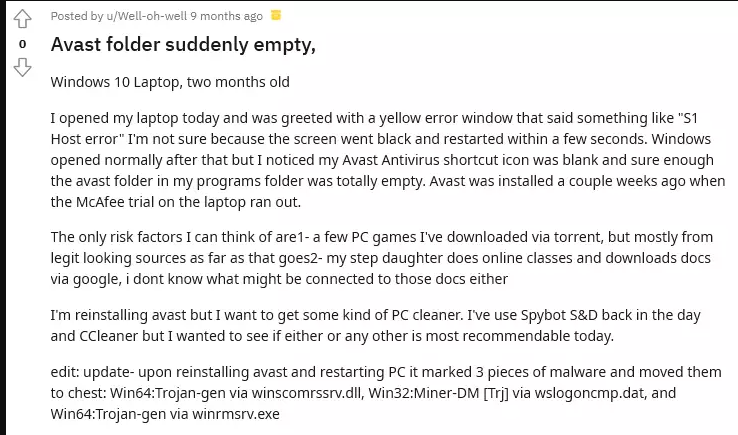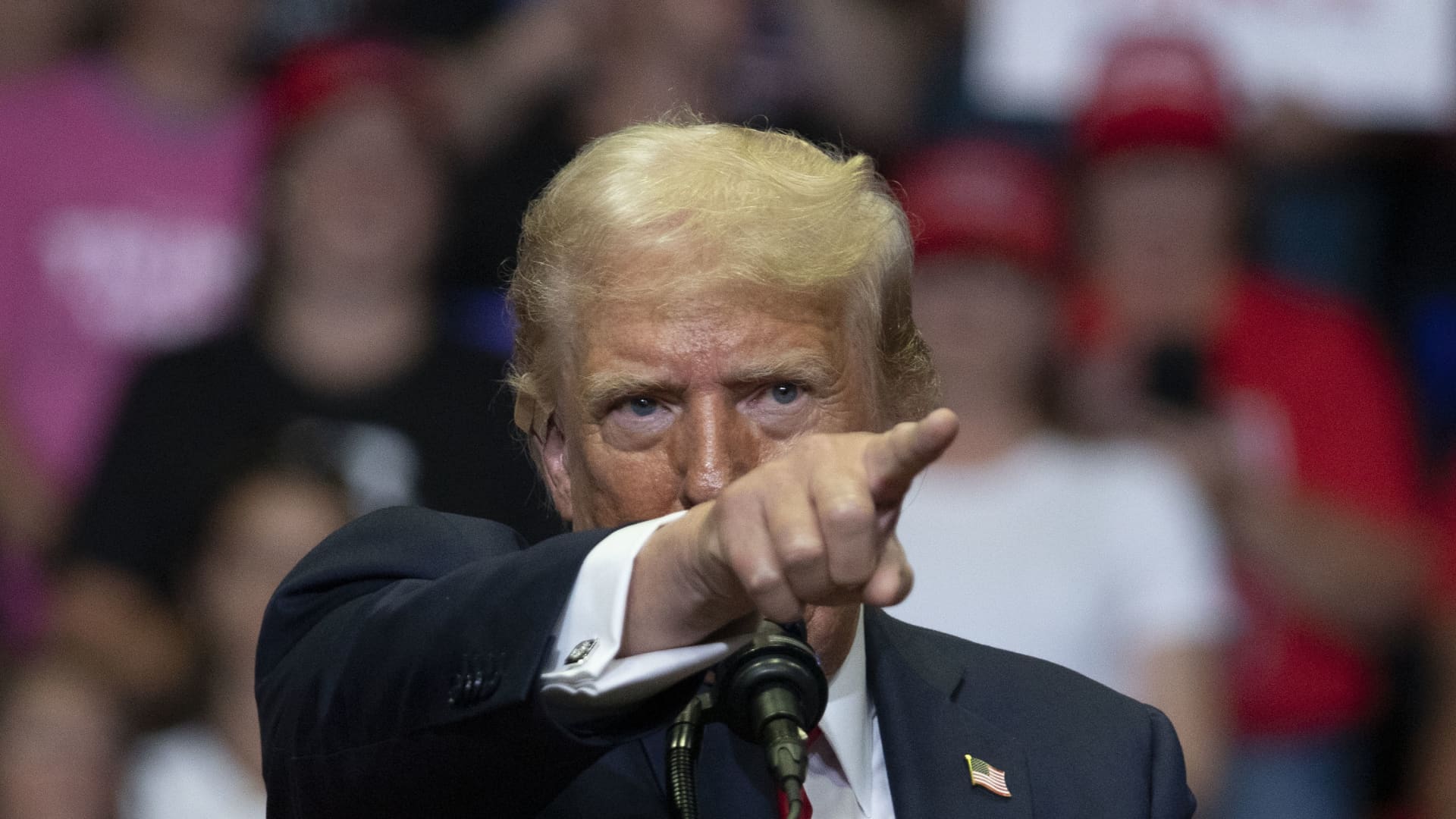News
Bitter Pills in Crypto Mass Adoption?

We examine the double-edged sword of privacy in crypto, analyzing how anonymity tools like privacy mixers and coins have impacted mass adoption amid the rise in financial crimes.
On January 3, 2009, the public had the chance to experience what anonymity in finance really meant — something we now know as cryptocurrency.
The inventors of cryptography saw it as a way to save economies from collapse due to the shortcomings of fiat currencies. Fast forward to the present, financial watchdogs are fighting against the use of virtual currencies due to the trend of fraudsters use them to earn billions of dollars every year.
Certainly, there is the notion that money launderers like to use cryptography to steal people’s funds because they are supposedly untraceable. Whether through crypto mixers or privacy coins, the sentiment has tarnished the image of crypto, but to what extent? Let’s find out.
Crypto Mixers and Privacy Coins: Anonymizing Transactions
Before we see how much crypto mixers and privacy coins have impacted the virtual currency landscape, let’s make one thing clear: cryptocurrency is more pseudonymous than anonymous. In layman’s terms, it means that the digital ledgers behind them don’t hide the fact that a transaction was made, they hide who exactly did it.
So in essence, encryption is not completely undetectable. And that’s why some developers in the crypto community decided to create a way to completely anonymize transactions, and two ways to do this were through crypto mixers and privacy coins.
Crypto mixers, or tumblers, are platforms that take potentially associated funds and pool them with others to make it difficult to establish the origin of certain coins. On the other hand, privacy coins are cryptocurrencies that employ certain sophisticated cryptographic features, such as stealth addresses, to increase obscurity for their users.
The purpose of privacy coins and crypto mixers is likely why financial fraudsters use them to hide where their money is going.
Chainalysis launched a report earlier this year, showing that there was an estimated $24.2 billion worth of cryptocurrencies received by illicit addresses in fiscal 2023.
Looking deeper into this, we can uncover events that support what scammers think when they go the crypto route:
Tornado Money
According to the European Union (EU) Innovation Center for Homeland Security, hackers and scammers often launder stolen funds using crypto mixing services like Tornado Cash to hide traceability and avoid detection. According to the EU center, services have greatly slowed down the efforts of regulators to create the foundation for mass adoption of crypto.
Looking at the case brought against the co-founder of Tornado Cash, perhaps the EU is pointing the finger in the right direction. Recently identified by blockchain analytics entity Arkham Intelligence, Orbit Chain saw an explorer move around $47.7 million into Tornado Cash. The funds are a portion of the $82 million stolen from the network in January.
We can only speculate what the hacker wants to do with the funds transferred to the crypto mixers. Unfortunately, such incidents fueled the fate of Tornado Cash co-founder Alexey Pertsev, who was condemned to sixty-four months for money laundering in May by a Dutch court.
Crypto mixers like Tornado Cash were created to increase the anonymity factor of using virtual currencies. However, money launderers and scammers have found a way to “corrupt” the service, forcing some open source software makers to give up creating them or improving their functionality to to fear of accusation.
Tornado Money:
NO ONE HAS EVER OWNED OR OPERATED IT.
On Ethereum, you can write and deploy a non-ownership, unstoppable, non-custodial open source application that runs itself FOREVER.
This is a new technology. It deserves new laws.
Throwing people in prison for writing code is UNFAIR.
-Chris Blec (@ChrisBlec) May 15, 2024
Although the crypto community is supporting the Tornado Cash co-founder, with privacy advocate Chris Blec emphasizing the need for new legislation to safeguard user privacy in emerging blockchain technologies, the damage may already have been done.
Monero Privacy Coin, Money Laundering and CSAM Watch
Privacy coins have their merits and liabilities, but overall they present a development in cryptography that enthusiasts want to see advance. These digital assets, for example, Monero (XMR), echo exactly what cryptocurrency users want in its entirety: confidentiality and discretion.
Unfortunately for the community, these two entities are exactly the music that money launderers, hackers and scammers want to hear. Thus, they take advantage of the features and advantages of using privacy coins.
Child sexual abuse cases
In Chainalysis’ recent crypto crime report, Monero was reportedly widely used by CSAM (child sexual abuse material) providers in the financial year 2023. According to the crypto statistics firm, Monero plays a more significant role in enabling CSAM providers launder their earnings online rather than just obscuring the purchases themselves.
Chainalysis shared a snapshot of a CSAM-affiliated dark web forum asking for Monero donations.
A screenshot showing a CSAM vendor asking for XMR donations | Source: Chainalysis
They believe vendors are asking for Monero because it takes advantage of instant exchanges. Instant exchangers operate without holding users’ funds and generally do not support crypto-to-fiat currency conversions. However, unlike decentralized financial protocols, they are centrally managed by a single organization.
Additionally, these exchanges leverage the liquidity of multiple exchanges to offer competitive pricing and facilitate direct cryptocurrency-to-crypto exchanges between users’ wallets, often performing on-chain transactions. challenger track back. Combined with lax know-your-customer (KYC) requirements, these platforms can be advantageous for hiding the origin of cryptocurrency transactions.
Player scams
In 2021, the gaming community faced hackers who stole their fortunes by installing malware in very popular titles. The malware, dubbed crackanoshit was used by cybercriminals to extract the powers of computers around the world and use them to mine cryptocurrencies.
Since gaming platforms are often quite powerful by design, their processing powers became a good giveaway that hackers were unable to approve, and they made over $2 million worth of Monero from the illicit activity.
 A Reddit post about Crackanosh | Source: Reddit
A Reddit post about Crackanosh | Source: Reddit
Why did they choose to mine Monero? Well, it could be because it is easier to mine than cryptocurrencies like Bitcoin. However, perhaps it is because with Monero, they could easily exchange digital currencies for fiat and live happily ever after.
Tales may make us feel that Monero does more harm than good, and that is not the case. Privacy coins were developed to improve the functionality and use cases of the cryptocurrency industry. But scammers and money launderers have tarnished their reputations and brought greater scrutiny from financial and regulatory watchdogs.
Improving Crypto’s Reputation: What We Can Do
Recently, the CEO of blockchain data analytics company Bitrace, Isabel SHI, gave her thoughts on crypto crimes at an event held at the Hong Kong Polytechnic University.
Isabel SHI, CEO of Bitrace, was invited to the Hong Kong Polytechnic University to give a presentation titled “Cryptocurrency in Crime and Money Laundering”. She explored why cryptocurrencies are widely used in criminal activities, introduced new types of crimes caused by…
— Wu Blockchain (@WuBlockchain) June 23, 2024
Isabel began by analyzing the reasons behind the widespread use of cryptocurrencies in criminal activities. She emphasized that anonymity, decentralization and ease of cross-border transfers make cryptocurrencies inherently suitable for illegal purposes.
The CEO highlighted that on-chain addresses do not require KYC verification, thus masking transactions from real-world identities. She also noted that the decentralized nature of cryptocurrencies ensures that only those with private keys can access their assets.
Furthermore, Isabel highlighted that the permissionless and borderless nature of cryptocurrencies allows transactions to be conducted globally at any time, making them particularly attractive to criminals.
From Bitrace and Isabel’s view, we can see that fraudulent trends arise from gaps present in blockchain ecosystems. And to stop them, we may need to employ certain parameters that will not only eliminate the problem of attracting money launderers and scammers but also provide reasons for crypto mixers and privacy coins to prosper without a bad name.
Here’s what cryptocurrency mixers and privacy coin developers can do to prevent money launderers, hackers, and scammers from using their services for illicit activities and drive mass adoption of cryptocurrencies:
Crypto mixers
- Developers must implement strict KYC verification processes to authenticate users and prevent anonymous transactions.
- Companies can collaborate with regulatory authorities and comply with anti-money laundering (AML) and counter-terrorism financing (CTF) regulations.
- Integrating blockchain analysis tools can help crypto mixers and the community monitor transactions for suspicious patterns and intervene promptly.
- Since few users know how to use cups responsibly, companies must educate them about the consequences of illicit activities to promote ethical behavior.
Privacy Coins
- Developers can conduct regular audits and publicly disclose development activities to build trust with regulators and stakeholders.
- Collaborating with law enforcement authorities to share information about suspicious transactions and combat misuse effectively will strengthen regulation.
- Implementation of optional auditability or compliance features to serve users who prioritize regulatory compliance.
- Educating the community about the benefits of privacy while emphasizing responsible use will discourage illicit activity.
Privacy Slows Adoption, But Still Important
Although the use of crypto mixers and privacy coins has been an issue in achieving mass adoption of cryptocurrencies, their contribution to improving financial privacy cannot be ignored. While they offer a desirable feature for some of their users, anonymity issues have been linked to regulatory compliance and illegal activities.
However, the necessary actions must be taken by developers, who must increase controls and cooperate with the bodies that regulate these areas. However, as the world changes and new technologies emerge, achieving the critical rate of cryptocurrency adoption, even with such protection elements, is quite achievable.
By recognizing that privacy and regulation can coexist, the outlook for cryptocurrencies can remain positive for both regulators and cryptocurrency users.
News
Is Shiba Inu a good buy while trading below $0.01?

Advances in artificial intelligence (AI) technology and innovative new drugs in the weight loss market were major contributors to stock market gains for much of the past year.
While investors have reaped generous returns from owning mega-cap technology and some pharmaceutical stocks, it’s human nature to wonder what else is out there and where additional value can be found.
Investment alternatives how cryptocurrencies have gained massive popularity over the past decade or so — and one of the most curious cryptocurrencies, Shiba Inu (SHIB 2.08%), it may seem very tempting, as trades below a penny.
Let’s take a look at the Shiba Inu and find out if it’s a good buy right now.
What is Shiba Inu?
The first thing to know about cryptocurrency in general is that not all cryptocurrencies are created equal. Some of the most popular cryptocurrencies out there include Bitcoin, EthereumIt is Solana. While each of them still carries some degree of speculation, all of these currencies have achieved some form of real-world application.
For example, Bitcoin is now accepted as a means of payment in some online stores and retail establishments. In addition, many projects that revolve around non-fungible tokens (NFT) tend to rely on Ethereum, Solana, and other major cryptocurrencies.
Shiba Inuin turn, is in a totally different category.
That is, Shiba Inu is often affiliated with Dogecoin. Although Dogecoin has experienced some fleeting volatility in the past — largely thanks to some irreverent support from high-level personalitiesincluding Mark Cuban and Elon Musk — cryptocurrency is largely seen as a joke.
In investing, non-serious investments tend to fall under the category of a meme. Shiba Inu is no exception here. With little to no real-world utility, Shiba Inu is widely seen as a meme coin.
Image source: Getty Images.
Should you buy Shiba Inu while it is selling for less than a penny?
Shiba Inu’s price dynamics closely follow the rules of supply and demand. At the moment, Shiba Inu has a total supply of 589 trillion tokens, and the coin is trading at just $0.000017.
With such an abundance of Shiba Inu coins available, the asset is anything but scarce. In other words, pretty much anyone can buy Shiba Inu if they want to. For this reason alone, it doesn’t have much appeal for investors looking to spot a profitable opportunity.
Given the lack of demand, it is not surprising to see that the Shiba Inu is trading for less than a penny. Unless a large number of institutional investors invested billions of dollars in purchasing Shiba Inu, I can’t imagine a world where the currency starts to gain traction in the market.
Since cryptocurrency is still considered a speculative investment, I consider it highly unlikely that large fund managers will buy Shiba Inu en masse.
Instead, I think Shiba Inu will continue to be the favorite among a small group of retail investors — specifically, inexperienced traders who follow the advice of online influencers or fake financial gurus.
If you are looking for exposure to cryptocurrency but can’t decide which coin to buy, there are many cryptocurrency stocks that could serve as a decent proxy. Companies like Coinbase, Robinhoodand even Microstrategy each offers investors some exposure to the cryptocurrency landscape, but with some degree of isolated risk.
So while Shiba Inu may seem cheap, there are many reasons why the coin’s value remains depressed. I think investors are better off moving on from Shiba Inu and considering more established cryptos or individual stocks operating in the crypto space.
Adam Spatacco has positions in Coinbase Global. The Motley Fool has positions in and recommends Bitcoin, Coinbase Global, Ethereum, and Solana. The Motley Fool has a disclosure policy.
News
AI meme Raboo and crypto newbie ZRO

Disclosure: This article does not constitute investment advice. The content and materials presented on this page are for educational purposes only.
Raboo and ZRO are outperforming Dogecoin with unique features and growing investor interest.
In the evolving cryptocurrency market, Raboo (RABT) and ZRO are emerging as standouts, gaining significant traction among investors. These new coins are not only on the rise but are also outperforming the established meme coin, Dogecoin (DOGE).
Raboo’s unique integration of AI into meme culture and ZRO’s fresh approach are attracting a growing community of enthusiasts. This article delves deeper into the unique features of Raboo and ZRO, exploring how they are shaping the future of the crypto landscape and why they may offer compelling investment opportunities. Read on to discover the potential of these rising stars.
DOGE: The veteran memecoin
DOGE has a market cap of over $19 billion as of July 2024 and in this circulation, there is a supply of 145 billion DOGE. The price of the coin jumped 6% in the last 7 daysechoing the trend — increased investor interest and market recovery.
Although Dogecoin was initially created as a joke, it has still held up quite well, probably due to the fact that it has had a huge community since its inception and periodic endorsements from important people like Elon Musk, thus keeping this cryptocurrency relevant and moving.
Dogecoin’s current rise could also be driven by events such as increased institutional adoption and favorable developments around the Dogecoin Foundation. These events are generating more interest, with a halving likely in 2025. Analysts project that Dogecoin will trade within the $0.15 and $0.25 range in the near future.
ZRO: A Rising Star in the Crypto Universe
ZRO is the native token of LayerZero, a robust and promising newcomer to the cryptocurrency market, which has been attracting attention recently for its intrinsic value and recent market performance. LayerZero is a cross-chain interoperability protocol that allows blockchains to communicate seamlessly with each other, literally being a “blockchain of blockchains.” Ultra Light Nodes (ULNs) power this new development, verifying transactions and messages in a way that brings security and efficiency to chains like Ethereum, BNB Chain, and Avalanche. ZRO is up over 80% in the last 30 days, reaching $4.63 with a market cap of over $509 million.
While Dogecoin has been showing improved performance in the crypto scene recently, ZRO’s growth is very fast. Its strategic partnerships, such as the latest cooperation with Flare Network, extend it to 75 blockchains, greatly increasing its market position.
Analysts are bullish on ZRO and are pricing in long-term growth in the forecasts. While Dogecoin enjoyed community support and some celebrity endorsements, the focus that ZRO has placed on its technology development and practical applications gives it a distinct advantage in this increasingly competitive cryptocurrency landscape.
Raboo: Changing Memecoins with AI
Raboo (RABT) has quickly emerged as a significant player in the memecoin market, leveraging advanced AI technology to stand out from its competitors. The token’s unique approach includes a “Post-to-Earn” platform where users are rewarded for creating and sharing content, fostering dynamic community engagement. Raboo’s presale has been particularly successful, with tokens currently priced at $0.0048, representing a significant 233% increase since the presale began.
Despite Dogecoin’s established presence and recent price stability, Raboo’s rapid rise is remarkable. Analysts predict that Raboo could outperform Dogecoin, with expectations of a 100x return upon launch. This optimism is driven by Raboo’s unique technological capabilities and the growing appeal of its SocialFi features, which set it apart from more traditional memecoins.
Conclusion
Raboo and ZRO are emerging as strong contenders in the cryptocurrency market, outperforming the established Dogecoin with their unique features and strong community engagement. Raboo, with its AI-powered meme creation and “Post-to-earn” platform, offers a unique investment opportunity, especially for those looking to diversify their portfolios in the dynamic memecoin sector. ZRO’s focus on cross-chain interoperability also positions it well for future growth.
These developments highlight the evolving cryptocurrency landscape, where technological creativity and community-driven models are becoming increasingly important for success. Investors should consider Raboo for its high potential returns and innovative features.
For more information, visit the Raboo Pre-Order Website or follow the project at Telegram or X.
Disclosure: This content is provided by a third party. crypto.news does not endorse any products mentioned on this page. Users should do their own research before taking any actions related to the company.
News
The Rise of Cryptocurrency ETFs: How to Invest in Digital Currency Without Buying Coins

The introduction of spot cryptocurrency ETFs offers a new and easy way for investors to gain exposure to digital currencies.
For much of crypto’s existence, those interested in purchasing digital assets would have to do so through cryptocurrency exchanges. But now, that’s starting to change.
If you’ve been hesitant to dive into crypto due to what can sometimes be a daunting and technical task when navigating cryptocurrency exchanges, now might be the perfect time to explore the new spot exchange-traded funds (ETFs) available to investors.
Image source: Getty Images.
What are spot ETFs?
A spot ETF is a financial instrument that allows investors to gain exposure to the price movements of an underlying asset – in this case, cryptocurrencies such as Bitcoin (BTC -1.63%) and Ethereum (ETH -1.36%) — without directly owning the asset. These ETFs are traded on traditional stock exchanges, and their value is directly tied to the current (or spot) price of the cryptocurrency.
One of the main differences between owning a spot ETF and owning the actual cryptocurrency is the responsibility of custody. When you own cryptocurrency, you need to manage its storage and security, which involves using digital wallets and understanding private keys. With spot ETFs, the responsibility of custody falls on the fund manager, making it easier for investors to gain exposure to the asset without worrying about the complexities of secure storage.
In many ways, you can think of spot ETFs as gold ETFs. When people buy a gold ETF, they don’t actually receive gold coins or bars. Instead, they own shares that track the price movement of gold.
Another important distinction is trading hours. Cryptocurrencies can be traded 24/7, while spot ETFs are subject to the stock exchange’s trading hours. This means that you can only trade ETFs during market hours. These limited hours can lead to potentially missing out on significant price movements that occur outside of the market’s designated trading hours.
Options available today
Currently, the only options for investors looking for spot cryptocurrency ETFs are Bitcoin and Ethereum. These two cryptocurrencies stand out due to their significant value and established track records, positioning them as attractive options for integration into the stock market via ETFs. Bitcoin, often referred to as digital gold, was the first cryptocurrency (created in 2009) and the first to gain approval for a spot ETF. With nearly seven months of trading now under its belt, the approval of the 11th Spot Bitcoin ETFs was touted as one of the most successful ETF launches in history.
More recently, nine Ethereum spot ETFs have gained approval from the Securities and Exchange Commission (SEC) to begin trading on July 23. As the second most valuable cryptocurrency and the backbone of the decentralized finance (DeFi) economy, Ethereum was the next best candidate for a spot ETF launch.
While limited to two cryptocurrencies, as investors become more comfortable with digital currencies and ETFs continue to prove popular, we can expect to see more cryptocurrencies gaining ground as ETFs. The early stages of this expansion are already visible, with applications for Solana Spot ETFs starting to come in.
How to buy an ETF outright
Buying a spot ETF involves several steps and considerations, just like any other ETF investment. Here’s a detailed guide on how to do it:
- Start by researching the available Bitcoin and Ethereum ETFs. Compare their fees, assets under management (AUM), and performance. ETFs with lower fees and higher AUM are generally more attractive, as they may offer better liquidity and lower costs.
- To buy ETFs, you need a brokerage account. If you don’t already have one, choose a brokerage that offers a wide range of ETFs, low fees, and a user-friendly platform.
- If you’re new to the brokerage, you’ll need to provide personal information and fund your account with money from your bank. Most brokerages offer multiple funding methods, including ACH transfers, wire transfers, and check deposits.
- Once your account is funded, use your broker’s search function to find the Bitcoin or Ethereum ETF you’ve decided to invest in. ETFs are usually identified by their ticker symbols, so knowing them can make your search easier.
- Decide how many shares of the ETF you want to buy. You can place a market order, which buys the ETF at the current market price, or a limit order, which sets a maximum price you are willing to pay. Review your order carefully before submitting it.
- Once you’ve purchased the ETF, monitor its performance and keep an eye on any news or developments related to cryptocurrencies and the ETF itself. Regularly reviewing your investment ensures that it aligns with your financial goals and risk tolerance.
An evolving landscape
The introduction of Bitcoin and Ethereum spot ETFs marks a significant milestone in the evolution of cryptocurrency investing. These financial instruments offer a simpler and more accessible way to gain exposure to digital currencies without dealing with the complexities of cryptocurrency exchanges and direct ownership.
By following the steps to purchase these ETFs through a brokerage account, investors can seamlessly integrate digital currencies into their investment strategies. As the cryptocurrency market continues to mature, the availability and acceptance of spot ETFs is likely to expand, providing even more opportunities for investors to participate in this dynamic asset class.
RJ Fulton has positions in Bitcoin, Ethereum, and Solana. The Motley Fool has positions in and recommends Bitcoin, Ethereum, and Solana. The Motley Fool has a disclosure policy.
News
Trump raises over $4 million in bitcoin and other cryptocurrencies

Republican presidential candidate and former President Donald J. Trump holds a campaign rally at Van Andel Arena in Grand Rapids, Michigan, on July 20, 2024.
Bill Pugliano | Getty Images News | Getty Images
NASHVILLE, Tenn. — Former President Donald Trump is heading to Tennessee this weekend to deliver a keynote speech at a major bitcoin conference. It looks like he’ll be in front of a supportive crowd.
Trump, the Republican presidential nominee, has raised more than $4 million from a mix of digital tokens, a campaign aide told CNBC. Contributors have donated bitcoin, etherRipple’s XRP token, the stablecoin pegged to the US dollar USDC and several memecoins, according to a Federal Election Commission filing.
The more than 1,000-page report shows totals for the joint fundraising committee “Trump 47” from April 1 to June 30. The committee raised more than $118 million during that period, with payments going to the Trump campaign, the Republican National Committee and other parties, according to the filing.
At least 19 donors have contributed more than $2.15 million in bitcoin to the committee, the lawsuit shows. The contributors hail from 12 states, including some battleground states. Their professions include homemaker, U.S. military officer, missionary, painter, pizza sales representative and State Department security technician.
Crypto billionaire twins Tyler and Cameron Winklevoss led the charge, each contributing 15.57 bitcoins, or just over $1 million at the time of the donation. Since their contributions surpassed the $844,600 limit, the lawsuit indicates that the money was partially refunded. Mike Belshe, CEO of digital asset security firm BitGo, contributed $50,000 worth of bitcoin.
Tyler Winklevoss, CEO and co-founder of Gemini Trust Co., left, and Cameron Winklevoss, chairman and co-founder of Gemini Trust Co., speak during the Bitcoin 2021 conference in Miami, Florida, U.S., on Friday, June 4, 2021.
Eva Marie Uzcategui | Bloomberg | Getty Images
In recent months, Trump has positioned himself as the pro-crypto candidate for president, a reversal from his previous stance during his time in the White House. Trump launched his latest collection of non-fungible tokens on the Solana blockchain in April and has since been making increasingly optimistic crypto commentary. Along the way, he has gained the support of several influential tech and crypto investors, including venture capitalists Marc Andreessen and Ben Horowitz.
Trump will be in Nashville on Saturday to deliver the keynote address at The Bitcoin Conference, which is being held at the Music City Center. He will also host a campaign fundraiser in the city on the same day, where tickets cost up to $844,600 per person.
Front-row tickets include a seat at a roundtable with Trump and cost the maximum donation amount allowed for individuals. the Trump Committee 47. The next tier includes a photo with the former president for $60,000 per person or $100,000 per couple, according to the invitation.
Brian Hughes, an adviser to the Trump campaign, said that of the more than $4 million in cryptocurrency raised, most of it came in bitcoin.
“Crypto innovators and others in the tech sector are under attack from Kamala Harris and the Democrats,” Hughes said, referring to the de facto Democratic nominee. “While the Biden-Harris Administration stifles innovation with more regulation and higher taxes, President Trump stands ready to encourage American leadership in this and other emerging technologies.”
Trump, the first major presidential candidate to accept donations in digital tokensYou can receive contributions in a variety of cryptocurrencies, including Dogecoin, Shiba Inu coin, XRP, USDC, and Ether.
Kraken founder and former CEO Jesse Powell has donated nearly $845,000 worth of ether. Stuart Alderotylegal director of Curlinggave $300,000 in XRP token. Alderoty recently attended a Trump fundraiser organized by venture capitalist David Sacks in San Francisco.
Former Messari CEO Ryan Selkis, who resigned last week from the company he co-founded after posting about “literal war” against Trump opponents, donated $50,000 in USDC.
So far, it appears that the Trump campaign is converting these contributions immediately to USDC and then liquidating the donations. In some cases, however, the campaign has chosen to keep the USDC.
Trump has personally promised to defend the rights of those who choose to self-custody their currencies, meaning they are not dependent on a centralized entity like Coinbase and instead use cryptocurrency wallets, which are sometimes beyond the reach of the IRS.
Trump also vowed at the Libertarian National Convention in Washington in May to keep Sen. Elizabeth Warren, D-Massachusetts, and “her henchmen” away from bitcoin holders. Warren is a vocal critic of cryptocurrencies.
Meanwhile, after a meeting at his Mar-a-Lago club in Florida with about a dozen bitcoin mining executives who pledged their support, Trump declared that all future bitcoins will be minted in the US if he returns to the White House.
Trump has named Ohio Senator J.D. Vance as his running mate, a move seen by many as a victory for the cryptocurrency sector. Vance has advocated for looser regulation of cryptocurrencies and revealed in 2022 that he personally holds bitcoin.
The Biden White House has stepped up regulation of cryptocurrencies, with the SEC stepping up its crackdown on the sector in recent years.
Don’t miss these insights from CNBC PRO
-

 Altcoins12 months ago
Altcoins12 months agoTop Solana-Based Altcoins Stack Up As Market Turns Bullish!
-

 Altcoins12 months ago
Altcoins12 months agoAltcoins Are Severely Undervalued, Awaiting Ethereum Move | Flash News Detail
-

 News12 months ago
News12 months agoAI meme Raboo and crypto newbie ZRO
-

 Altcoins12 months ago
Altcoins12 months agoAltcoins Correct Amid ETH Decline, Grayscale Outflows | Flash News Detail
-

 DeFi12 months ago
DeFi12 months agoIf You Missed BONK and PEPE This Year, This Viral New Crypto Might Be Your Salvation
-

 Tech1 year ago
Tech1 year agoLogan Paul Offers Partial Refund for Failed CryptoZoo Game
-

 News12 months ago
News12 months agoDonald Trump vows to make the US a ‘Bitcoin superpower’ and create a national stockpile of tokens
-

 DeFi12 months ago
DeFi12 months agoIf You Missed BONK and PEPE This Year, This Viral New Crypto Might Be Your Salvation
-

 Tech1 year ago
Tech1 year agoThe Latest Tech News in Crypto and Blockchain
-

 Altcoins12 months ago
Altcoins12 months agoAltcoins set to make new crypto millionaires during summer rally
-

 DeFi1 year ago
DeFi1 year ago🪂EigenLayer Airdrop Claims Go Live
-

 Videos1 year ago
Videos1 year agoLIVE FOMC 🚨 Could be CATASTROPHIC for Altcoins!






